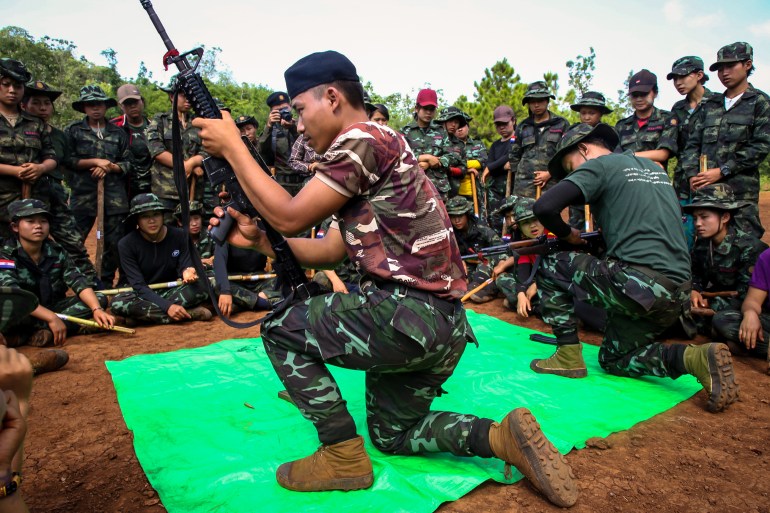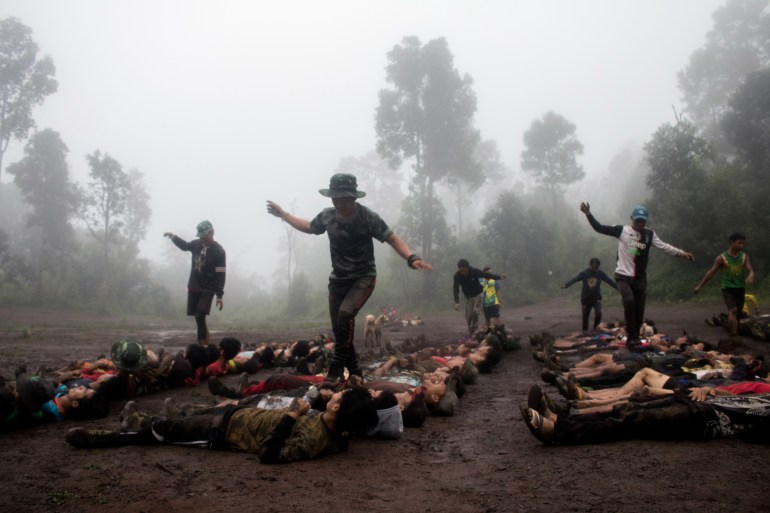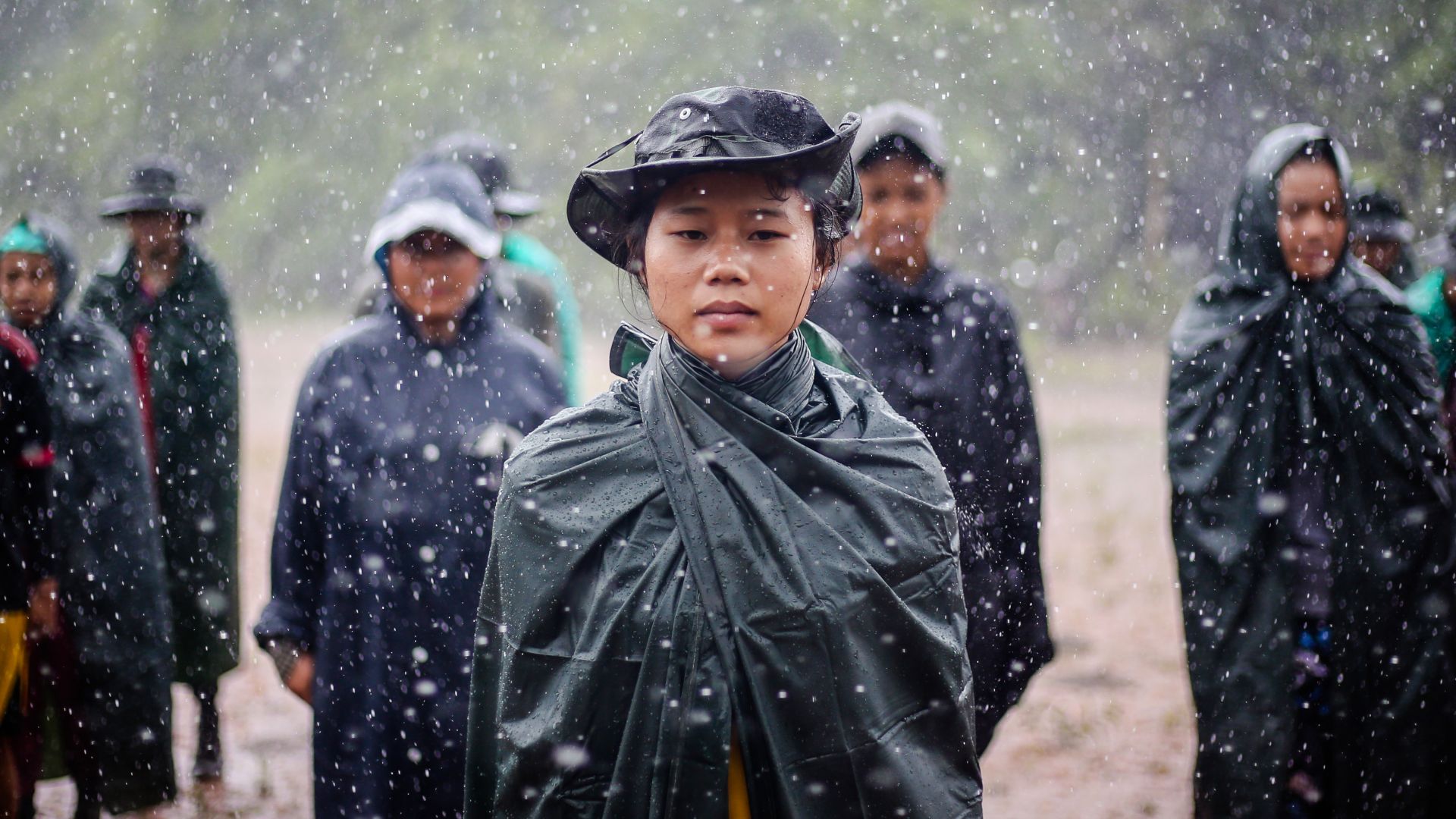Life and death on the front lines of fighting in Myanmar
The Karenni have battled Myanmar's military for decades. Now, a new generation of fighters faces an intensifying conflict. A report from Kayah state.
Demoso, Eastern Myanmar - The rebel commander studies a chicken bone in a search for clues as to the fate of his coming attack against the Myanmar military.
Scraggly bearded Reh Du, 27, frowns. The signs from the bone are mixed.
Nevertheless, his underlying confidence in the plan of attack against Myanmar’s military in the hills of eastern Kayah state is steadfast.
“I believe we will win,” the shrapnel-scarred fighter says after his act of divination – a practice these ethnic Karenni fighters embrace in uncertain times.
“Today or tomorrow,” he says.
Around Reh Du and his prophecy ritual, villagers in the conflict-torn township of Demoso celebrate Karenni new year, dancing under totem poles to the beat of traditional drums and the distant thunder of artillery shells.
Like the other ethnic minorities of Myanmar’s borderlands, the Karenni have fought against persecution by the military for decades in Kayah state, which is located between Myanmar’s capital Naypyidaw and the border with Thailand to the east.
Kayah has also witnessed one of the most coordinated rebellions in the country since Myanmar’s military seized power from an elected government in February 2021.
The brutality of the crackdown on those protesting peacefully against the military’s power grab evoked outrage, which has since boiled into a nationwide revolt.
Ethnic armed groups, such as the Karenni, have provided military training to everyday protesters who have risen against the military under the banner of the People’s Defence Force (PDF).
A striking feature of the uprising has been the range of people leaving from Myanmar’s cities – baristas, fitness instructors, marketing managers – to take part in combat training in the jungle.
As a result, the military government has lost control of most of Kayah, the smallest of Myanmar’s seven states, along with western border areas and even swaths of the military’s traditional recruiting grounds in the Magway and Sagaing regions.
Sporting a fresh tattoo of a Kalashnikov assault rifle on his forearm, ethnic fighter Reh Du is a leading figure in the Karenni Nationalities Defence Force (KNDF) – an ethnic armed group.
Interviewed earlier this year, Reh Du tells Al Jazeera he fights to protect Karenni identity and to maintain the independence of their way of life free from domination by Myanmar's military and the authorities of the country’s majority Bamar ethnic group.
He spent eight years in a refugee camp, he says, before being jailed under the previous administration of Noble laureate Aung San Suu Kyi for protesting against the construction of a statute of her father and founder of the military, Aung San, in Kayah’s capital Loikaw.
Now Aung San Suu Kyi is herself detained by the military, recently being placed under house arrest and her 33-year jail term on corruption charges reduced by six years.
Reh Du told of worrying that if Aung San Suu Kyi was released, she might call off the uprising and the PDF’s armed operations.
“In Myanmar, the cult of personality is very strong,” he says. “If she says stop, they will stop.”
He also sees a difference in the commitment of fighters with financial means and other options in life compared with those who were grass-roots recruits to the struggle.
Urban recruits to the resistance often drop out, Reh Du says, leaving combat after a time to pursue other paths, such as educational and employment opportunities.

“Not only are rich people afraid to die, but our determination is not the same,” he says, telling how working-class Karenni people drive the revolution in Kayah state.
He has lost close friends in battle and he no longer sees his family because he believes the sight of their poverty will weaken his resolve to continue with the armed struggle.
“If you are a revolutionary, you cannot go back home,” he continues, explaining to Al Jazeera how being a fighter had required sacrifice in every aspect of life.
“You will see your family have nothing and you will never get strong. If you are fighting you must stay strong,” he says.

